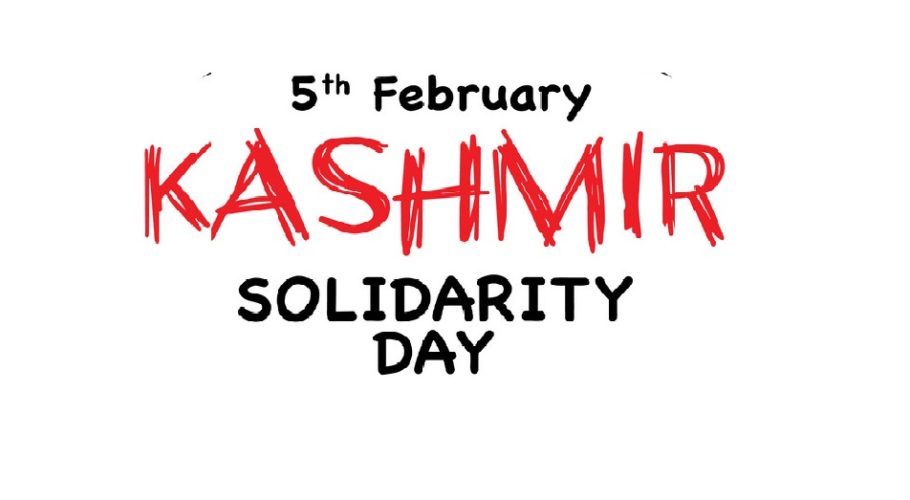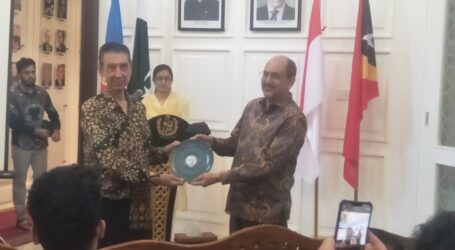Kashmir Solidarity Day – A Call for Global Attention

By: Ameer Khurram Rathore, Ambassador of the Islamic Republic of Pakistan to the Republic of Indonesian, ASEAN and Timor-Leste
Kashmir Solidarity Day is observed annually on 5th February around the world, to express solidarity with the legitimate freedom struggle of Kashmiris in the Indian Illegally Occupied Jammu and Kashmir (IIOJK). To understand the significance of this day, it is crucial to comprehend the historical context of the Kashmir conflict.
The roots of the Kashmir conflict are deeply embedded in the partition of the Indian Sub-continent in 1947. At the time of the Partition of India, Jammu and Kashmir was a princely state. It had an overwhelmingly Muslim population but was governed by a Hindu ruler, Raja Hari Singh. Due to historic, religious and geographic links,the people of Jammu and Kashmir decided to join Pakistan. But the Hindu ruler ofnKashmir,in collusion with the then Indian Prime Minister Jawaharlal Nehru and Governor General Lord Mountbatten went against the will of his people and signed a controversial instrument of annexation with India.
Indian forces invaded the capital of the Kashmir State, Srinagar, on 27 October 1947, and forcibly occupied Kashmir in utter violation of the partition plan.When Pakistan responded, India appealed to the UN Security Council to intervene and a ceasefire ultimately came into effect on 1 January 1949.The Security Council adopted a resolution on 21 April 1948, followed by several other resolutions,which promised a plebiscite under UN auspices to enable the people of Kashmir to determine whether they wish to join India or Pakistan. India was also a party to these resolutions.
Unfortunately, instead of honoring its obligations, India opted to use brutal force against Kashmiris to deny them the right of self-determination. On 5 February 1964, India backed out of its plebiscite commitment, and its Parliament declared Kashmir an integral part of the Indian Union.
The Kashmiris organized themselves against the injustices of India and launched a movement of liberation, which New Delhi tried to suppress through naked state oppression.Since 1989, various forms of state terrorism have been part of a deliberate campaign by the Indian army and paramilitary forces against Muslim Kashmiris. They have employed brutal tactics like crack downs, curfews, illegal detentions, massacres, targeted killings, sieges, burning the houses, torture, disappearances, rape and molestation of Muslim women and killings in fake encounters. Indian armed forces also utilize draconian laws, such as Armed Forces Special Powers Act (AFSPA), the Public Safety Act (PSA) etc, for blatantly killing the Kashmiri people and for arbitrarily arresting any individual indefinitely.
In order to maintain its illegal control, India has continued its repressive regime in IIOJK through various machinations.To implement the extremist Hindutva agenda of the RSS-BJP, the Indian Government unilaterally scrapped Article 370 and 35A of its Constitution in August 2019. These articles of the Indian Constitution provided a special status to the IIOJK and a degree of autonomy. Article 370 forbid Indians from outside Jammu and Kashmir from permanently settling, buying land, holding local government jobs and securing education scholarships. Whereas, article 35A permitted the local legislature in Kashmir to define permanent residents of the region.
India’s unilateral and illegal measures of 5 August 2019 were aimed at changing the demographic structure and political landscape of the IIOJK, in flagrant violation of International Law and the relevant UN Security Council Resolutions.The purpose of revocation of these articles was to further subjugate the people of IIOJK by relocating Hindus to Jammu and Kashmir; and,thus converting Muslim majority into a minority,which may ultimately alter the results of a free and impartial plebiscite. To achieve this objective, the Indian government has issued domicile certificates to thousands of non-Kashmiris, and registered almost 2.5 million new non-local voters.
Since 5th August 2019, the Indian security forces have imposed complete lockdown on the valley; and illegal searches, investigations, arrests and detentions have become a norm. These measures are causing immense hardship to the Kashmiri people, especially women, children, the elderly and the sick. Due to Modi’s government extreme, desperate and illegal actions of 5th August 2019, the Kashmir dispute has once again become the focus of attention of the international community. Since 5th August 2019, the Kashmir issue has been raised and discussed several times in the United Nations, which has once again indicated Pakistan’s position that IIOJK is an internationally recognized disputed territory, on the agenda of the UN, to be resolved as per the wishes of the Kashmiris according to the UNSC resolutions.
Pakistan has always safeguarded the rights of our Kashmiri brethren. It has consistently supported the right of self-determination for the people of Jammu and Kashmir and raised its voice on international platforms. Pakistan’s ultimate objective is a peaceful resolution of the Jammu and Kashmir dispute, as per relevant UNSC resolution and in accordance with the wishes of the Kashmiri people.
Kashmiris’ Right of self-determination was promised to them by the international community. The international community, hence, has a responsibility for its realization. Pakistan reiterates its call to the international community to take practical steps to hold India accountable for its gross and widespread human rights violations in IIJOK. A just and lasting solution of the Jammu and Kashmir dispute, in accordance with the relevant UNSC resolutions, is the only way to ensure durable peace and development in the region.
In conclusion, the observance of Kashmir Solidarity Day goes beyond national borders. It is a rallying call for justice, a plea for the recognition of human rights violations, and a call for the global community to take heed of the plight of the Kashmiri people. Pakistan’s unwavering support, both diplomatic and political, is a testament to its commitment to the Kashmir cause. As we commemorate this day, let it be a catalyst for renewed efforts towards a just and lasting solution to the Kashmir conflict according to the aspirations of the Kashmiri people. (AK/RE1/P2)
Mi’raj News Agency (MINA)






